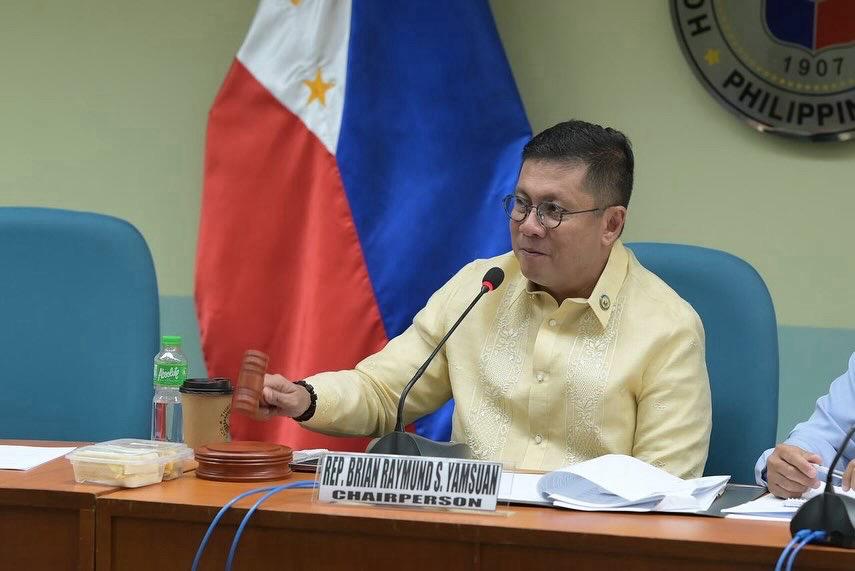
Bicol Saro Partylist Rep. Brian Raymund Yamsuan —Inquirer file photo
MANILA, Philippines — A bill that seeks to address the inadequacy of public school textbooks, by requiring the Department of Education (DepEd) and the National Book Development Board (NBDB) to formulate a national plan, has been filed at the House of Representatives.
Bicol Saro party-list Rep. Brian Raymund Yamsuan on Tuesday said that he has filed House Bill No. 10734 which seeks to amend Republic Act No. 8047 or the Book Publishing Industry Development Act, to ensure that public school textbooks are readily available and can address learning challenges faced by the country today.
READ: PISA shows PH students ‘5 to 6 years’ behind
READ: Good textbooks
If enacted, HB No. 10734 will task DepEd and the NBDB to jointly formulate and implement a National Textbook and Learning Resources Plan, which includes a specific set of policies, guidelines, and measures that would ensure the availability of textbooks and other learning resources.
“Our bill provides the answer to the longstanding problem of our public school learners who find it hard to study because of the lack, and even the complete absence, of textbooks,” the lawmaker said in a statement.
READ: Probe sought on DepEd textbook lack, process
“This has a big negative impact on their ability to study efficiently, especially in the subjects of Math, Science and Reading, where Filipino students have logged low test scores,” he added.
Future-proofing learning materials
Part of making textbooks available, Yamsuan said, is by future-proofing learning materials, by including online and e-formats as part of the textbook classification.
Meanwhile, a Textbook Review Committee will also be created to “evaluate and select textbooks and teachers’ manuals for use in public schools.”
“As our world becomes increasingly digital, aligning the definition of books to cover electronic forms reflects the way Filipinos consume information today. The new definition of the word ‘book’ to include e-books and other similar forms will ensure that Filipino students can keep up with rapid technological changes,” he said.
“This dedicated committee will guarantee that the quality of textbooks procured meets educational and industry standards. The bill requires that public school textbooks be reviewed, evaluated and revised, if necessary, every five years,” he added.
Learning struggle
According to Yamsuan, he had the idea of filing a bill after the Second Congressional Commission on Education (Edcom II) found that students in public elementary and high schools have struggled to learn for about a decade, due to incomplete or the unavailability of textbooks.
No less than Senator Sherwin Gatchalian, chair of the Senate committee on basic education, filed a resolution seeking an inquiry to assess DepEd’s procurement process due to this issue
Furthermore, Yamsuan said the Program for International Student Assessment (PISA) findings—where Filipino students were seen to be among the weakest in Math, Reading and Science, and even creative thinking out of a pool of 81 countries—was a consideration.
Yamsuan believes the problems can be solved by having NBDB play a more active role in book selection, as the bill also champions inclusive education—where consultative mechanisms between the agencies can also provide learning materials that would cater to persons with disabilities (PWDs) and other special cases. —with reports from Ysabel Escalona, trainee